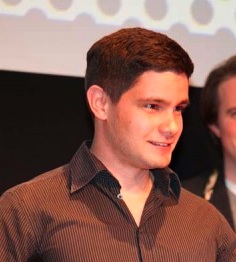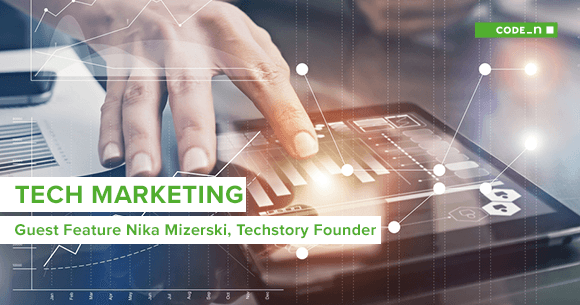Ridha Azaiz: "Get your idea checked from different angles"
 Ridha Azaiz is one of the CODE_n finalists and the founder of Solarbrush. He started studying at RWTH Aachen University and transferred to Technical University Berlin in order to finish his Master’s in mechanical engineering. His research and development activities have led to many awards, such as the Clean Tech Media Award and the start up award hy! Berlin.
Ridha Azaiz is one of the CODE_n finalists and the founder of Solarbrush. He started studying at RWTH Aachen University and transferred to Technical University Berlin in order to finish his Master’s in mechanical engineering. His research and development activities have led to many awards, such as the Clean Tech Media Award and the start up award hy! Berlin.
Janina Benz: Congratulations on being one of the 50 CODE_n finalists! Could you tell us about Solarbrush?
Ridha Azaiz: Solarbrush is a robotic cleaning system for solar panels. Cleaning is very important, especially in arid regions, as generators lose up to 35% in efficiency in a single month after a sand storm. The robot has a very lean and efficient drive that attaches to the inclined panels, which distinguishes the Solarbrush robot from others. It is also very light weight and can cross the solar panels, costing just a fraction of what competitors charge. We’re pioneers in the field and were first in shifting the focus from the cleaning and maintenance of photovoltaic (PV) cells in Europe to the sunbelt countries. Where there is lots of sun, PV produces the most output but also suffers from deposits.
JB: You came up with the idea of Solarbrush at a very young age. When was the first time you thought about designing a solar panel-cleaning robot?
RA: In 1998, when I was 13, I first thought about the design of a robot that cleans solar panels. People used to call me nuts for building this robot, as the market volume was very limited back then. Anyhow, I kept on working on the robots and developed many mechanisms. This process was interrupted when there was the hype about nano coatings in the early 2000s. I found out, though, that those are not practical outdoors, and both sand and dust still remain on the solar panels. In 2007, I stopped again when the marketing chief of a German solar cell producer told me that it’s not necessary to clean solar panels as the rain washes them clean on a regular basis. But through my website, I kept getting requests for a solution, and a study from the Middle East was sent to me: they lost about 80 % in efficiency after a sandstorm and rain was very rare. Later I found out that the solar industry did not like what I was doing for marketing reasons: they claimed their modules were free of maintenance.
JB: How are you getting prepared to present at CeBIT?
RA: I’ve exhibited at trade shows before, like the Hanover Fair, Intersolar, and the World Future Energy Summit in Abu Dhabi. It was my first trade show in a foreign market but my Solarbrush robot was very well received. When preparing for the trade show I had to put thoughts into the design of the booth so I could make it fit in a suitcase when disassembled. It had to be light weight and meeting requirements for air travel. Besides my booth, my pitch is ready as well: I have been taking part in the hub:raum accelerator program and did exercise to present my business on a weekly basis.
JB: What are you looking forward the most at CeBIT?
RA: Networking—I am looking for a programmer that can contribute to further developments such as the navigation of the robot. Second, I am very keen on winning the CODE_n award!
JB: What is the most important piece of advice you can offer other young entrepreneurs?
RA: When I was very young, I didn’t question it when the head of marketing from the German solar company said no one would need a robot. I thought, “He has a PhD and is probably right.” Today I know that his opinion was biased. You should get your idea checked from different angles and point of views. Plus, always keep the business development part separate from the technology development—that way, you do not give away your core. Keep it lean! Company consultants and lawyers might scale the business way too big way too early, and that will burn money if things do not work out.
Editor’s Note: We’ll be featuring some of our finalists on the blog in the weeks leading up to CeBIT, but their participation has no bearing on the contest results.





Write a comment